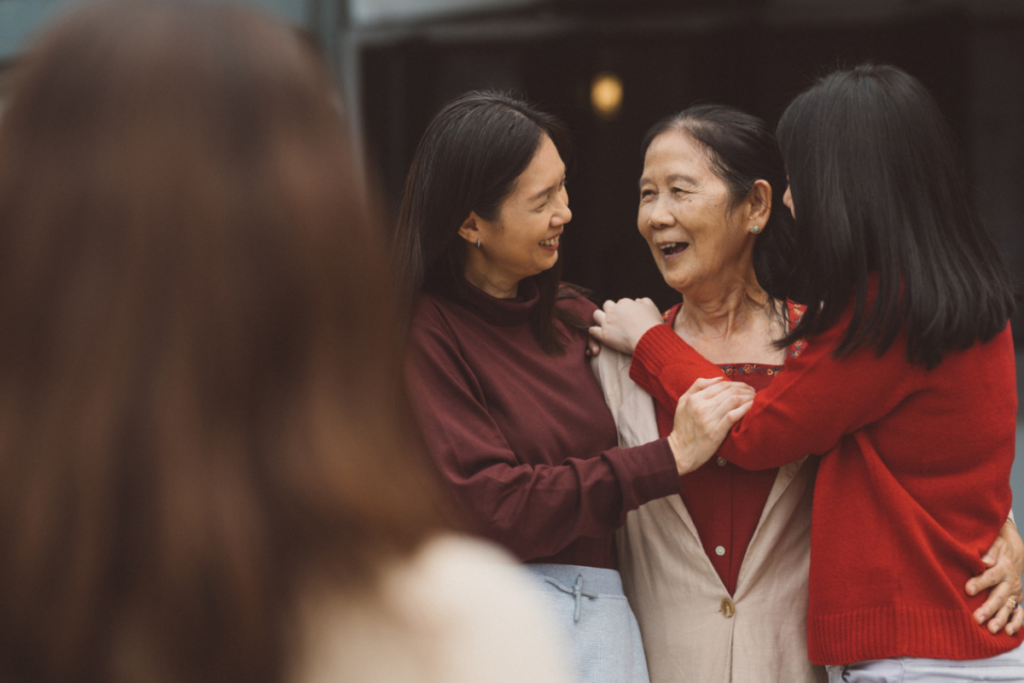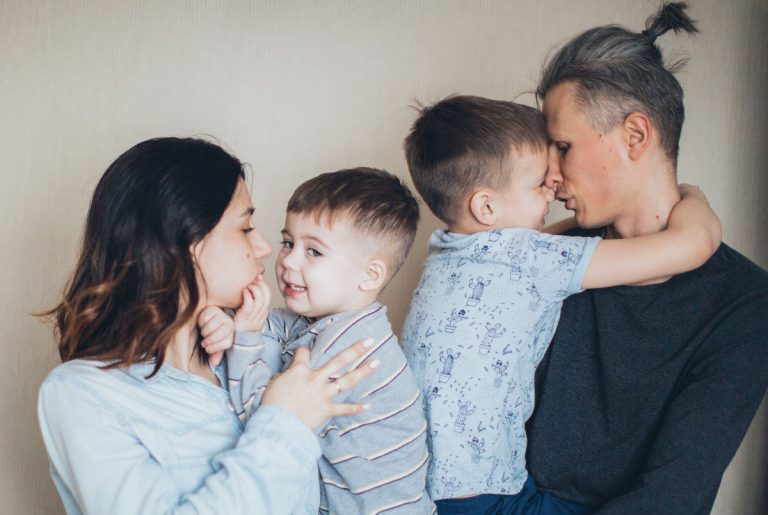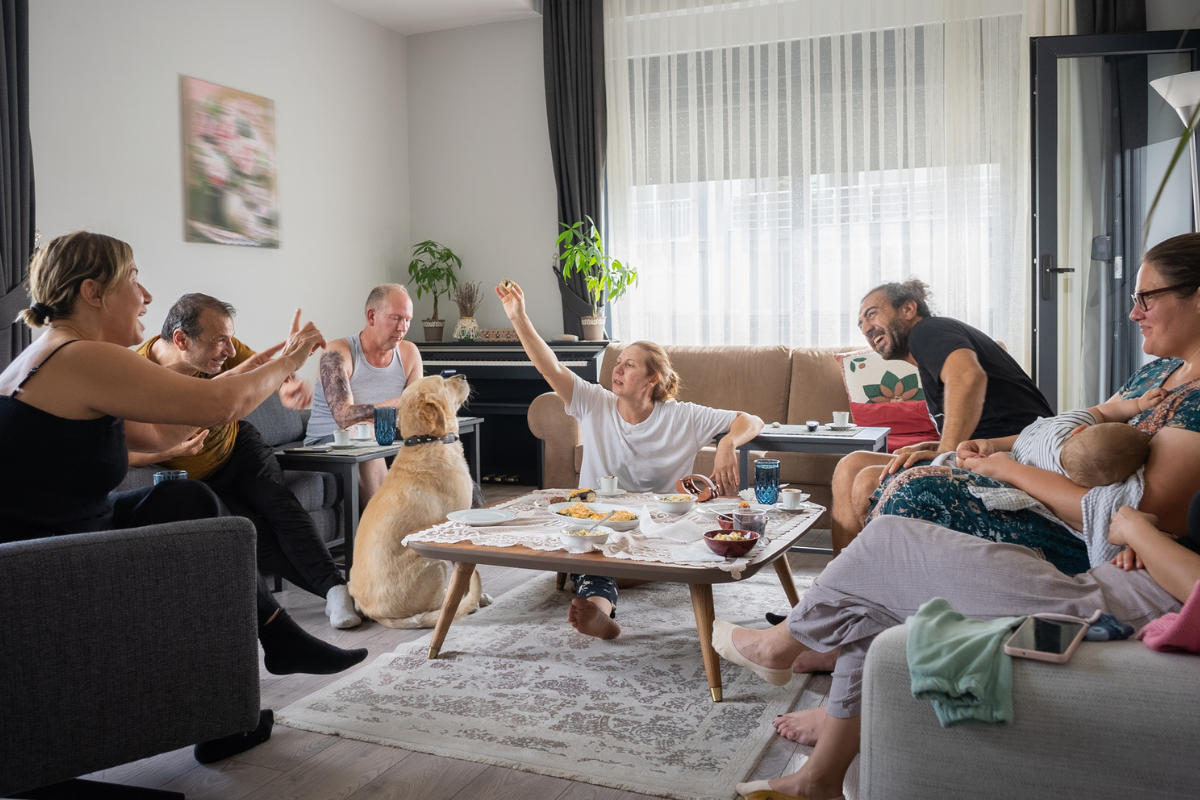December and January are sold to us as the happiest time of year, filled with joy and merriment – but for many of us, the festive season can be a source of increasing anxiety and stress, and put pressure on our relationships.
For some families, the tension starts even earlier – as soon as getting together is raised. Issues about who appears to “control” the day, who gets to make decisions, what traditions are fixed, battles over what has to be the same and what can be different, are all in the mix.
As families get older, juggling in-laws and their traditions can be difficult unless there is family flexibility. If there is family conflict between individual members, or nasty dynamics that play out, then there can also be dread and fear about the events.
Why can the festive season be a time of such tension?
There’s a range of reasons why people might experience stress, anxiety, or resentment for family events:
- rituals and expectations that make people feel controlled or suffocated, and like they have to act their way through events
- it highlights the lack of meaningful relationships or loneliness within their relationships
- historic tensions provoked by personality or value clashes, entrenched judgements, or abusive behaviours
- recent, unresolved problems between family members – there’s a chance holidays are the first time people will be seeing each other since having a disagreement.
People might start the day with hidden resentment, but as the event continues and drinking ensues, it can become more visible.
Check if traditions work for everyone
To make celebrations more enjoyable for everyone involved, it can help to talk to your family from a place of curiosity. How could the event change to make others feel more comfortable? Could the length or time of the event be shifted?
If you are grappling with obligations to both sides of the family, openly discuss this with siblings and parents. If you have always done Christmas lunch, for example, it might be time to review that. Some families swap lunch one year and dinner the next, to make sure everyone gets a turn and everyone can attend.
If your family refuses to budge, you could consider attending every second year and see them later in the day. Accepting that not everyone can get what they want, and handling the guilt and upset, is all part of the navigation.
The main focus needs to be on managing yourself. How can you be a person you are proud of and get through the day without additional torment or regret? Even if you are frustrated about the nature of the arrangements, is there a way you can instead focus on what works, and what good things can come out of the day?

Turning down the temperature
Families – and the individuals within them – have different levels of tolerance for robust discussions. For a politically savvy family, debates and discussions can be quite engaging. However, if there are some great biases or prejudices or dominant personalities, it can be wise to distract, agree not to discuss those sorts of issues or manage people by simply not engaging.
If conflicts do arise, there are some simple strategies you can use to cool things down:
- Tune in to yourself: Often, we focus on the problem of other people, and how to respond to them. Instead, ask yourself: why am I so provoked, worried or anxious? How do I manage myself and the situation so that I leave in good shape?
- Intervene early: You can politely smile, make a casual joke, but with a very clear boundary, and then stick to it. For example, “I’ve decided not to bite this year. Let’s discuss something else”. At an early stage, you can be light about it, whereas if the fight gets underway, it can be harder to withdraw.
- Get help: If others are usually not involved in conflict, you can ask them beforehand to help with distracting from arguments. It’s not about picking sides or being allies in conflict but having someone prevent the fighting from escalating.
- Offer leadership: If you struggle with a particular family member, let them know you want it to go well, and you intend to do your part in this. Ask them if they would be willing to join you and take certain topics off limits.
- Take time out: If people keep trying to engage negatively, be ready to have a time out yourself. You can go into another room to decompress, have some short meditations on your phone or use strategies to calm yourself and recommit to your personal goals for the event. If you use time out to go over the problem, you might end up re-entering the conversation from a more vulnerable position.
- Be ready to exit: If things regularly go pear-shaped, say in advance you have to leave early for another commitment, so that it’s expected, and you can make a good exit. If you decide to leave early spontaneously, it could look like you have walked out.
Bystanders also play an important role in keeping things on an even keel. Many fear that stepping in means taking sides, rather than thinking about how to ensure that relationships stay strong and it’s a pleasant day.
Strengthening connections
The festive season can be a really great opportunity to come together, put differences aside and connect with the people we care about.
A good way to enter the spirit of the festival is to think about who you’re going to see and what you like about them. This helps stay calm and focused on your own goals when they also get a bit annoying.
Try and connect with your overarching meaning for any event, for example the value of staying in touch or the comfort of rituals (even if they are also a bit tired).
If you want a helping hand in navigating family dynamics and having open conversations in a safe, neutral space, we offer individual and family counselling.
Related Services & Workshops

Counselling.Families.Life Transition
Family Counselling
Our trained and compassionate family therapists provide Family Counselling services online and in-person throughout NSW. Family Counselling provides a safe space to address problems, hear each other’s perspectives, overcome difficulties, improve communication, and restore and strengthen relationships.

Counselling.Individuals.Older People.LGBTQIA+
Individual Counselling
Life can be full of ups and downs. While we may be able to overcome most challenges by ourselves, sometimes we need some extra support. Individual Counselling offers a supportive environment to identify and manage problems and concerns.

Counselling.Families.Mental Health
Adolescent Family Counselling
The teenage years can feel like an emotional minefield – and knowing how to support an adolescent can seem equally as daunting. Adolescent Family Counselling aims to restore and repair relationships by providing strategies to support teens and their families through significant life changes.






